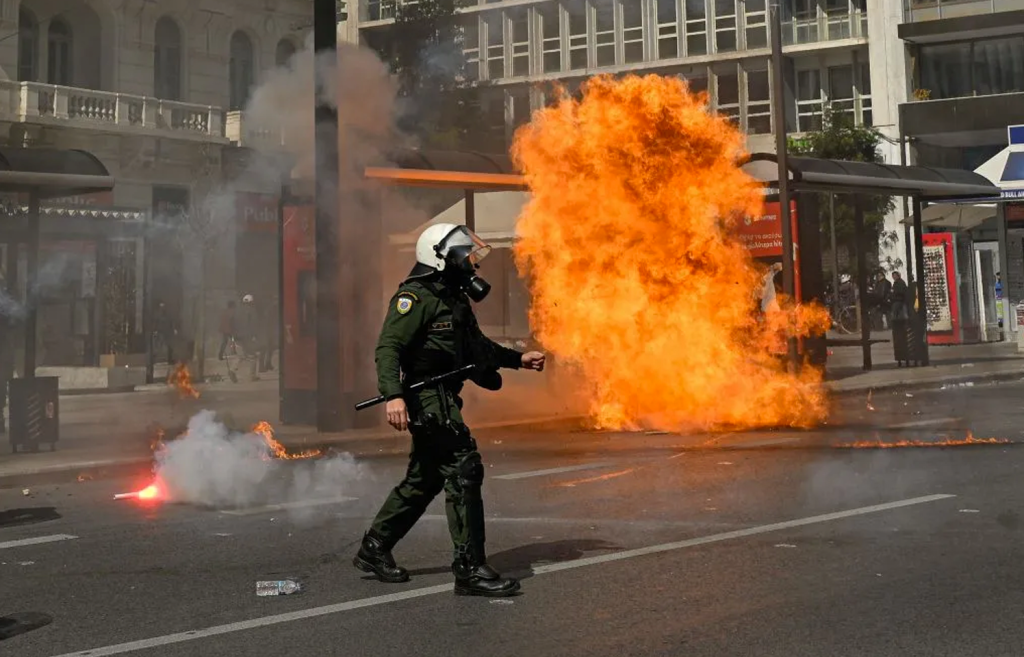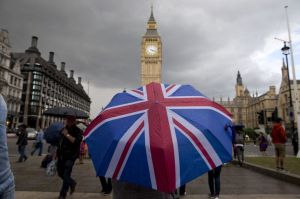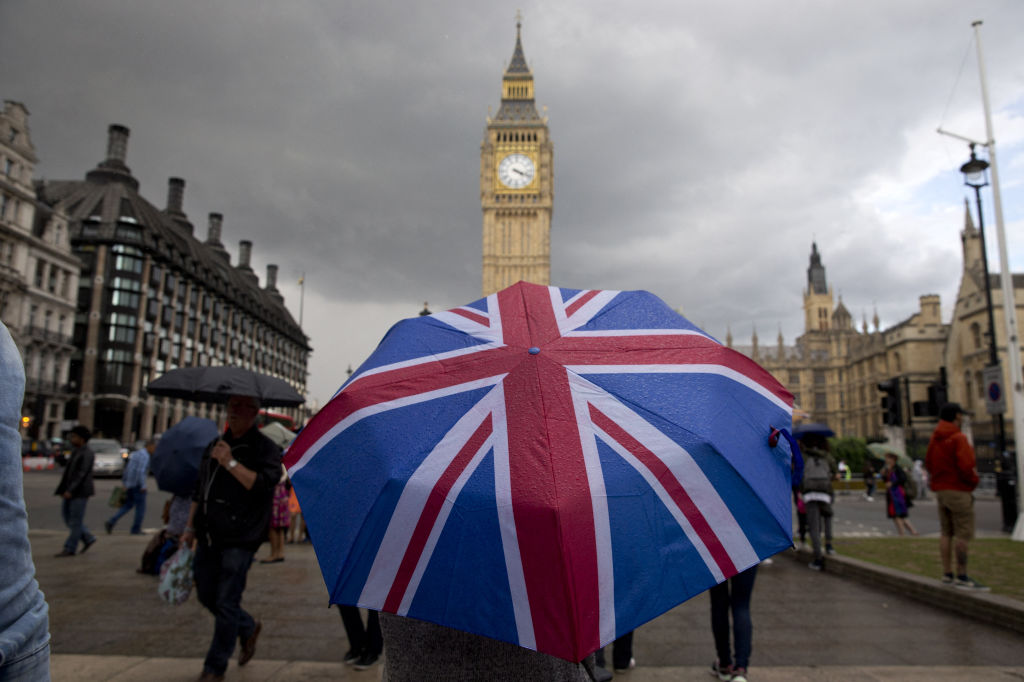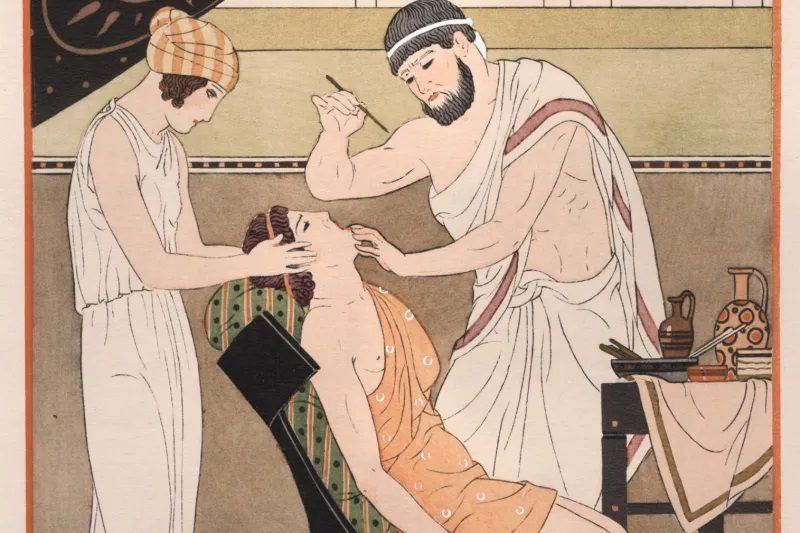“Message me when you get there.” This phrase became a rallying cry when hundreds of thousands of people took to the streets across Greece this week, in protests sparked by the country’s deadliest train disaster which killed fifty-seven people earlier this month. Anger against the government was palpable, with protesters shouting “murderers” outside the parliament building in Athens, forcing PM Kyriakos Mitsotakis to postpone his plans to announce the date of the next elections.
To understand why this particular incident threatens to upend the ruling party’s certainties, we must unpack the phrase used by the protesters. It’s hard to understate the emotional resonance of that simple line for Greek people. My own phone is full of messages like that, sent by my mother whenever I’m traveling. They don’t even stop when you’re in your mid-thirties and live abroad. The phones of the fifty-seven victims, most of them university students traveling from Athens to Thessaloniki in the north of the country, would have also been full of these messages.
This isn’t just about the young age of the victims; there’s a sense that this train wreck symbolizes the country’s situation after more than a decade of austerity under incompetent governments. And it’s this sense that is driving the anger against a whole class of politicians who seem unwilling to change course and stop the terminal decline that the country has been in since the 2010 debt crisis, leaving its young people with no prospects at best, or tragic victims of its failures at worst.
Rail workers from OSE (Greece’s network operators) are now on strike, highlighting issues that were known about the rail industry but remained unaddressed for years: extreme understaffing, irresponsible practices and crumbling infrastructure.
The numbers are quite striking: according to the workers, OSE employs 133 station masters when 411 are needed. The staffing numbers would reportedly need to at least double if incidents like this are not to be repeated. The workers also say the country needs to take infrastructure maintenance more seriously, highlighting how the electronic system that could have prevented this tragedy was in place, but had not been functional for years. Greece is the only country in the EU where train journey times have become longer, less frequent, and as this incident clearly shows, more dangerous.
The train crash is part of a pattern repeated in every disaster that afflicts the country, like the fires that ravage Greece every summer, or the pandemic which is still going strong in Greece with the healthcare system falling apart.
The sense of injustice that drives the protests grows stronger because, as many protesters have noted, the current government seems to be able to find the funds for things when they deem it important. For instance, the government hired 4,000 police officers when Greece was already second (behind Cyprus) in the number of officers per capita across the EU. And it showered media outlets with tens of millions during the pandemic to promote the “stay at home” message — which is widely seen as buying the silence of critical voices in the media. The Greek journalists’ union issued an apology after the train disaster that pretty much amounted to an admission of guilt. “The tragedy highlights, in a most painful way this time, the structural problems that plague the Greek media.” it reads. “The warnings of the railway workers did not receive the coverage commensurate with the seriousness of the issue and the few, but existing, reports by journalists, media and investigative journalism groups were not reproduced.”
And this unfortunately captures why nothing will be resolved, and why disasters like this keep happening. With no effective mechanisms to hold the government to account — as the media keep silent, the legal system appears compromised beyond salvation, and the opposition completely impotent — there is little that can be done for the country to change course. And so the rage builds.
This article was originally published on The Spectator’s UK website.


























Leave a Reply